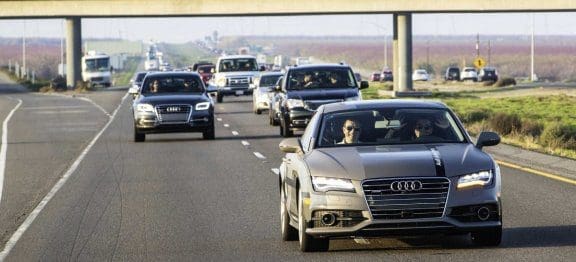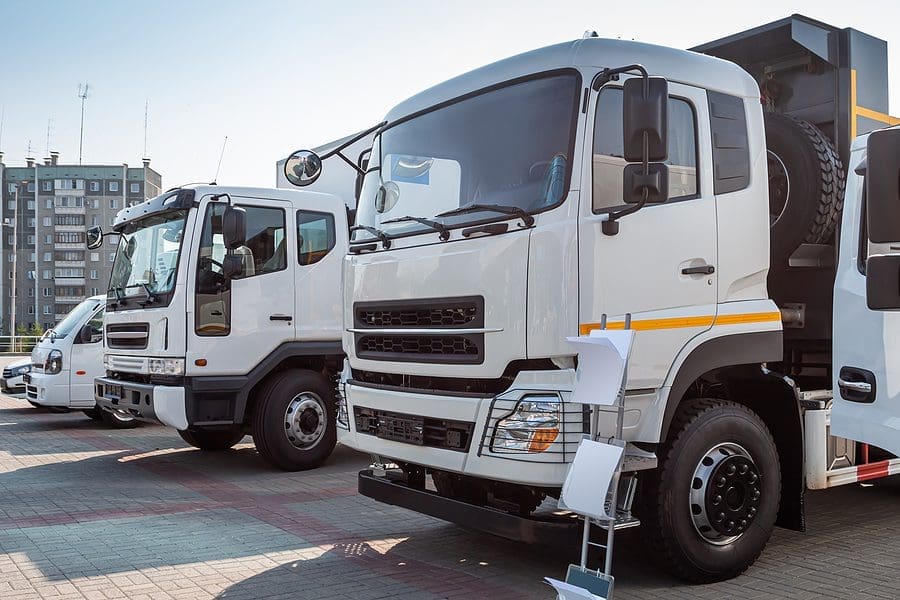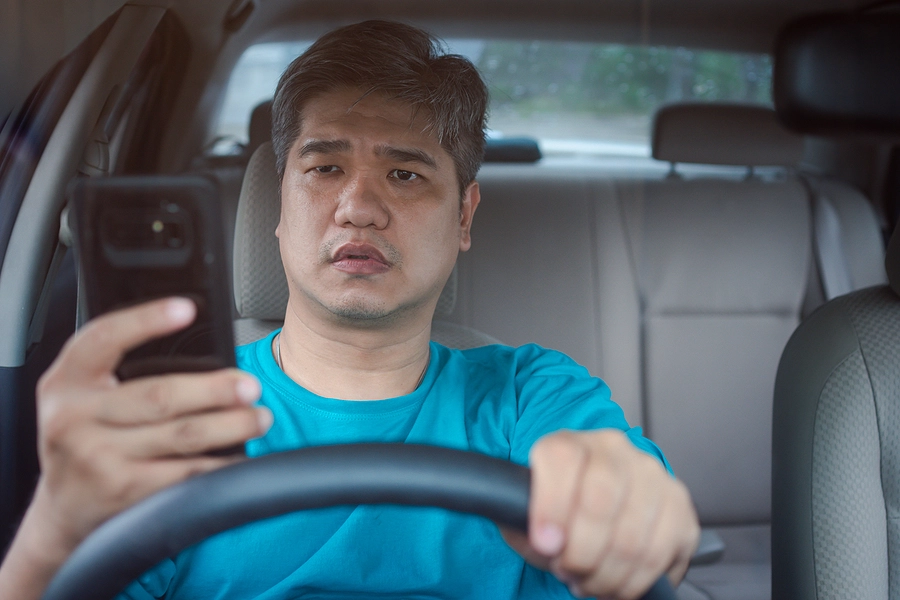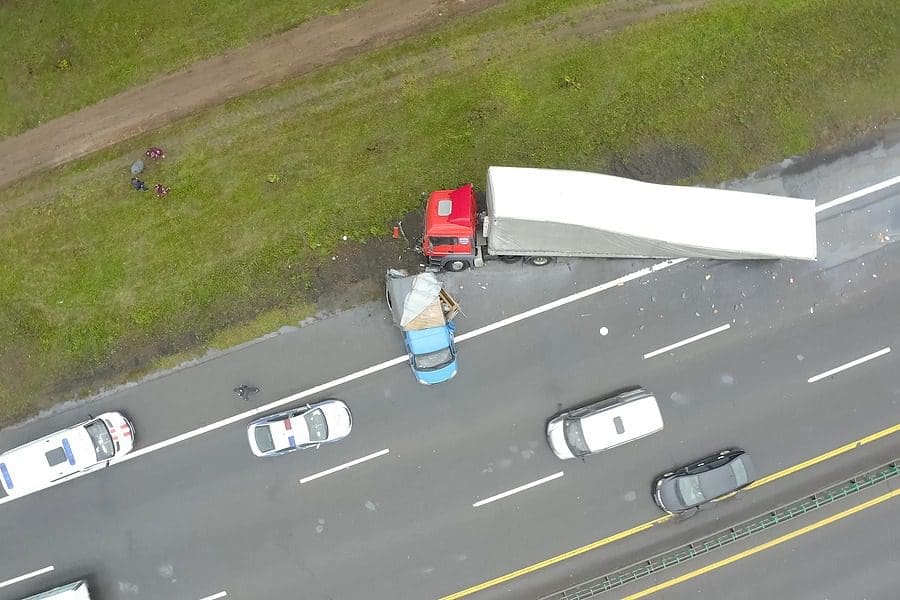JONES LAW GROUPYour Lawyers for Life! Personal Injury Law Firm in St. Petersburg

By: Heath C. Murphy + – Personal Injury Cars are safer than ever before. Cars are increasingly coming equipped with forward collision warning systems, blind spot detection, lane departure warning, lane departure prevention, autobraking, adaptive headlights and adaptive cruise control. Google is testing driverless technology and expects to have the technology available to automakers by […]
Call our personal injury law office directly at (727) 512-9847
At Jones Law Group in St. Petersburg, FL, we would like to hear from you. Contact us for a free personal injury case consultation.
Call our personal injury law office at (727) 512-9847
Get educated on the Florida's personal injury laws and more.
By: Heath C. Murphy + – Personal Injury
Cars are safer than ever before. Cars are increasingly coming equipped with forward collision warning systems, blind spot detection, lane departure warning, lane departure prevention, autobraking, adaptive headlights and adaptive cruise control. Google is testing driverless technology and expects to have the technology available to automakers by 2020. Four states, one of which is Florida, have passed laws allowing driverless cars on the roads. Just recently Audi introduced the Audi A7 with Audi Pilot that drove from San Francisco to Las Vegas to be introduced at the International CES 2015 (one of the largest electronics and technology events in the world). It drove the 550 miles at speeds of up to 70MPH while navigating in and out of traffic and during both day and night conditions. The days of driving are over, right? By 2017, Audi hopes to have an autonomous car on the market, though the sticker price will probably prevent the average American from owning one. By 2040, analysts are expecting that 75% of cars will be driverless.
The Current Safety Features
While it is neat to imagine a world where going on a road trip meant just strapping in for a nap, it is also pretty exciting to look at the safety technology that will actually affect the average Floridian in the near future. Today, many manufacturers offer forward collision warning systems, blind spot detection, lane departure warning, lane departure prevention, autobraking, adaptive headlights and adaptive cruise control as safety features on certain models. These technologies are meant to assist the human driver and alert that driver of dangers faced while driving.
Adaptive Cruise Control
How often on road trips do you become frustrated when the driver in front of your car slows and forces you to tap the brakes and disengage the cruise control? Adaptive cruise control will use a predetermined distance between your car and any traffic in front of your car. It will use the engine and brakes to adjust the speed of your car to account for slower traffic. When the cars in front begin to speed up or leave your lane, the car will automatically return to the speed set for the cruise control. This video provides an example of how the adaptive cruise control works.
Adaptive Headlights
Adaptive headlights allow the driver to more clearly see the road in front of the car. The car will automatically adjust high and low beams, but that is only the beginning. Adaptive headlights will also turn slightly based upon steering and speed of the car. Instead of illuminating the side of the road in a sharp curve, the headlights will pivot allowing the driver a clear view of the roadway.
Lane Departure Warning and Prevention
Lane departure warning and prevention systems will warn and/or prevent a car from leaving its lane, provided the turn signal is not activated. The system uses cameras to detect the lane and will give either a warning, in the form of sound or vibration in the seat that the car is leaving its lane. Some cars actually steer the car back into the correct lane. The system while helpful is likely of little or no use in inclement weather.
Blind Spot Detection
Blind spot detection systems use sensors that alert the driver when a car or motorcycle has entered the blind spot of the automobile. The car will then issue an alert to the driver. This alert is usually a light on the mirror indicating that another car or motorcycle is in the vehicle’s blind spot. Some systems actually will steer the car to avoid a collision with a vehicle in the blind spot.
Front Crash Prevention
Front crash prevention systems rely upon radar or cameras to judge the distance between your car and objects in the road, including other cars and motorcycles. When the system detects that the car is approaching an object too quickly it will warn the driver to brake. Some systems will actually tighten seatbelts and adjust the seats to minimize injuries while others will bring the car to a stop.
The accident free car may not be on the road just yet, but it is clear that automakers are making great strides to reduce the number and severity of automobile accidents.
Contact an Experienced Car and Motorcycle Accident Lawyer at Jones Law Group
Have you or a loved one been injured in a car or motorcycle accident? Contact an experienced St. Petersburg accident attorney at Jones Law Group today. When you contact our office we will immediately set an appointment where you will meet your attorney and be provided with his/her personal contact information. If you do not have transportation or you cannot drive, your attorney will travel to meet you and discuss your case with you.
If you or a loved one has been injured in a motorcycle accident caused by the negligence of another, you should immediately call an experienced personal injury attorney in St. Petersburg at Jones Law Group at (727) 571-1333 during regular business hours or (727) 753-8657 on weekends or after regular business hours. We will evaluate your case for free and you will never pay us a dime unless we recover compensation for your injuries.
Jones Law Group
5622 Central Avenue
St. Pete, FL 33707
References:

According to the Wall Street Journal, the deadliest place in the country to ride a bicycle is the same place we call home. This is alarming news. Florida has been found to be home to the top four ranking areas in bicycle deaths. The Tampa Bay metro area was found to be the most dangerous […]

While there has been a trend in recent years showing fewer automobile accidents, the same cannot be said for motorcycle crashes. Since 2001 the number of people in Florida injured in a motorcycle accident has risen by 50%. While the number of deaths of motorcyclists involved in an accident has risen by 90%. The increase […]

More than 300 people died on Florida roads due to truck accidents in 2019, and thousands of others suffered debilitating, life-altering injuries. When people suffer such horrible losses, those responsible must face accountability. The only way truck accident victims can obtain justice is by hiring an experienced attorney. These legal professionals possess the knowledge and […]

Proving the at-fault driver acted negligently is critical when pursuing compensation in car accident claims. Summary A car accident caused by another person’s negligence can upend your life in a split second. Beyond the physical pain of injuries, you may find yourself buried under mounting medical bills, vehicle repairs, and the strain of lost income. […]

Each year, thousands of people die in large commercial truck accidents. In 2019, there were 4,119 fatalities as a result of these crashes. 67% of all fatalities were occupants of passenger vehicles, while 16% were truck occupants. The remaining 17% were vulnerable road users, such as pedestrians, bicyclists, and motorcyclists. These accidents can be devastating, […]

By: Heath C. Murphy + – Personal Injury Florida is one of the most popular vacation spots on the planet. There are roughly 1 million seasonal residents who spend time in Florida, otherwise known as snowbirds. There are roughly 100 million people that visit Florida annually. It is an unavoidable fact that many non-residents will […]
Speak with us before time runs out! In Florida, you have a limited window to file a personal injury case, so speak to an Attorney today.
Call our personal injury law office directly at (727) 512-9847
Jones Law Group is a dedicated personal injury lawyer in St. Petersburg, FL, serving the Tampa Bay area since 2006. Our experienced attorneys specialize in car accidents, slip and fall cases, employment law disputes, construction law issues, and overtime wage claims, fighting for maximum compensation on a contingency fee basis. Contact us for a free consultation to discuss your case.
Call our personal injury law office at (727) 512-9847
© Copyright 2006–2025 Jones Law Group Attorneys at Law. All rights reserved. Privacy Policy Terms of Use
Attorney Advertising.
The information on this website is for general information purposes only. Nothing on this site should be taken as legal advice for any individual case or situation. This information is not intended to create, and receipt or viewing does not constitute, an attorney-client relationship. Past results do not guarantee similar outcomes.
Are you injured or wronged and interested in a consultation? Fill out the form for a free consultation with us.